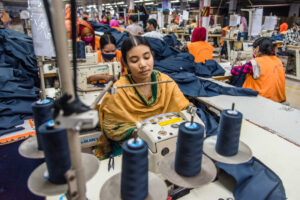The liberal and critical perspectives’ views of globalization differ quite radically. The liberal view of globalization is that of increasing interdependence and the ways in which countries are interdependent, also known as complex interdependence. Furthermore, the liberal perspective also believes that globalization and complex interdependence lead to less conflict between states because they are mutually dependent on each other in the global system. Additionally, liberals believe that technological developments and institutional complexity will lead to progressive improvements over time.
Alternatively, the critical perspective highlights that the global system is based on Western values and goes hand in hand with exploitation from colonization. The critical perspective also believes in the dependency theory, which details a system in which a metropole (colonizer) is surrounded by satellites (colonies) that serve the metropole. The critical perspective also believes that the global system cannot be corrected because it is based on exploitation and racism, and that globalization will result in countries losing their culture, as well as the marginalization of people of color and women.
The primary way in which these two perspectives differ is in their judgment of globalization. Liberals see globalization as something that will benefit the world, increasing interdependence between countries and moving technology forward. Those of the critical perspective see globalization as furthering historical injustices and abuse at the hands of Western powers, in a system that is made to benefit said powers. The critical perspective sees the harm in globalization much more than the liberal perspective.
I see validity in both perspectives’ analysis of globalization. However, I believe I agree more strongly with that of the critical perspective. I think that globalization has caused a lot of harm to the world in many ways, especially to the non-power/satellite countries. Globalization allows companies to export their labor to countries with low wages and weak labor laws, which hurts workers in those companies’ countries who are losing manufacturing employment opportunities and allows for the exploitation of workers in the low-wage countries. I also think the example we talked about in class, about how expensive/luxury chocolate comes from places like Belgium and Switzerland, even though the actual cocoa is coming from countries such as Ghana is very illuminating; this example highlights the problem with globalization as rich, white countries receive the financial benefits of resources from poorer, non-white countries in a global system based on exploitation and the prioritization of certain countries’ desires.
I think the critical perspective is more convincing to me because, while it is true that globalization has increased interdependence and technological advances, I don’t necessarily think that is good in all ways. For instance, less developed countries are reliant on developed countries to buy their agricultural products, which may not even be the products that were originally grown in those countries, but rather the products that developed countries needed and forced the production of in these less developed countries when they were colonies. I find this to be incredibly problematic and distressing, which is much more aligned with the critical perspective interpretation rather than the liberal interpretation, which would see it as an example of global interdependence. All in all, I believe the critical perspective has a more accurate and realistic view of globalization and its effects on the world and global system.

Cocoa being grown in Ghana (DW, 2022) https://www.dw.com/en/cocoa-farming-for-forest-conservation-in-ghana/a-60636978

November 3, 2023 at 5:19 am
I agree that the Critical perspective gives a more realistic view of globalization. Ignoring corruption and exploitation is a major flaw in any system and I think the Liberal perspective directly ignores this. I found the chocolate example striking as well. Developed countries are extremely privilege in the way that they can sell their “gourmet chocolate” with the ingredients coming from the exploited under-developed countries.
November 4, 2023 at 7:32 pm
Your view on this topic is critical and persuasive, and you present a strong argument for the critical perspective on globalization. Although I agree with you that this view of globalization is significantly more persuasive, I’d like to present a slightly different take. Globalization has presented nations with significantly more opportunities for development, economic freedom, trade opportunities, technology, communication, international security, and the list can go on and on. One cannot dismiss the benefits that globalization and global interconnectedness have provided the world. However, we also have to recognize the downfalls, the dependency theory like how it is presented from the critical perspective is applicable to every advantage that globalization poses. I believe to adequately judge globalization, advantages and disadvantages alike, we cannot take an entirely liberal or critical view. Questioning to what end is the world benefitting from globalization until it isn’t. Nonetheless, I do still agree more closely with your perspective on the matter, yet we cannot entirely dismiss the other.
November 4, 2023 at 9:13 pm
Hi Evelyn, thank you for sharing your thoughts! I thought your definitions of the two perspectives were concise and accurate, which I appreciated. I, too, find the critical perspective more persuasive than the liberal perspective, mostly because it is unrealistic to assume that all countries can have equal access to international / global economic opportunity, especially as we are a part of a world in which multiple major powers take advantage of developing countries’ resources and labor. My question to you is this: How might liberals rationalize the chocolate example that you mentioned in your post?
November 7, 2023 at 12:15 am
Hi, I really like your blog post. I was wondering, if a liberal perspective would approve of complex interdependence, do you think they would prefer for a developing country to be reliant on an already developed one, and if not, what makes that situation different to you?
I also really liked your example and completely agree globalization definitely has a bias toward exploitation in developing countries. When there is a diffusion of ideals from a Western country into a developing state, so often the power is able to gain resources and profit that could be going to stabilizing the developing state. It’s a bit of a hypocrisy because rather than having a symbiotic relationship, often instead of leading by example and spreading democratic ideals through developing a foundation in other countries, global powers tend to leave developing countries vulnerable to un-democratic ideologies instead.